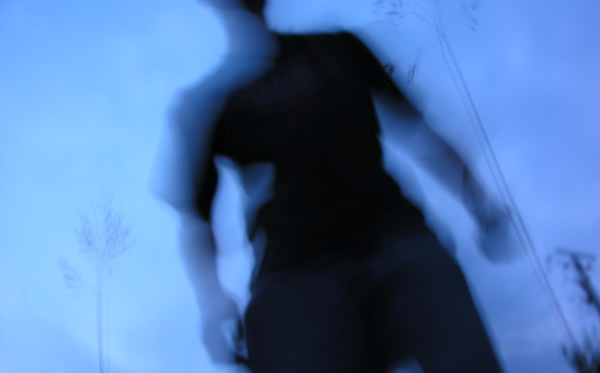Leviticus 26:3 – 27:34
Our Torah portion contains a lengthy section (Lev. 26:14 – 63) of horrific depictions of pain and suffering that threatens Israel should the people reject God’s ways. This sectioon, called the Tokhehah – Admonition, is read in an undertone because its contents are so disturbing. (A similar section also exists in Moses’ recapitulation of the Torah, in Deuteronomy 28:15 – 68.)
These horrors comprise both physical and psychological afflictions, and their combination. One striking motif is depicted more than once. It is Israel’s acute experience of catastrophic panic, despite the absence of any real threat or danger! Thus, the verse reads: “You will be plagued before your enemies, your foes ruling over you, and you will flee but there will be no one pursuing you.” (v. 17) And later, God tells us that, as we continue to suffer and be dispersed, “those who remain of you – I will bring fear into your hearts in the lands of your enemies; the sound of a driven leaf will pursue you, and they will flee to escape the sword – but there will be no one pursuing.” (v. 36)That is to say, we will be so consumed with fear, so convinced of the vivid reality of our fears, that we will create images of enemies and threats that do not really exist. Then, in our fear of them, we will run away from our imaginary, nonexistent pursuers, only to stumble and fall because our own paranoia.
The pain and suffering exists on every side. The one who sees enemies and dangers everywhere is pained by the obliviousness of those who dismiss those fears and concerns. And those who see the fear as unfounded are distraught to see their friends and family overtaken by ghosts and phantoms. If our enemies are real, then ignoring them is disastrous. If our paranoia is real, then promoting it is disastrous. If our enemies are real, we must be vigilant and attack them or defend ourselves, or run! But if our enemies are figments of our unbalanced anxieties and misplaced rage, then we need to look inward to cure ourselves of our sickened spirits. Which is it? What are we to do? Neither side can persuade the other.
And since we cannot agree about the facts of the matter, we are incapable of drawing the appropriate lessons from our painful situation. We cannot determine whether or not we are really suffering from a Divine curse, an admonition that is meant to warn us and be a wake up call to us. We cannot agree on what admonition we are supposed to heed. We cannot agree on what we are supposed to wake up to. Such an inability to understand the meaning of our experience is an affliction more terrible than those depicted in our Torah reading. It is a curse that our own Torah found too terrible to contemplate.
Shabbat Shalom
Rabbi David Greenstein
![]()
Subscribe to Rabbi Greenstein’s weekly d’var Torah
Image(s): “Dead Man Walking” © cbamber85 altered and used with permission via Creative Commons License
- Toby Stein: In Memoriam - Thu, Feb 8, 2024
- Faithfulness and Hope: Parashat Sh’lach - Thu, Jun 23, 2022
- Past Their Prime: Parashat B’ha`a lot’kha - Thu, Jun 16, 2022

